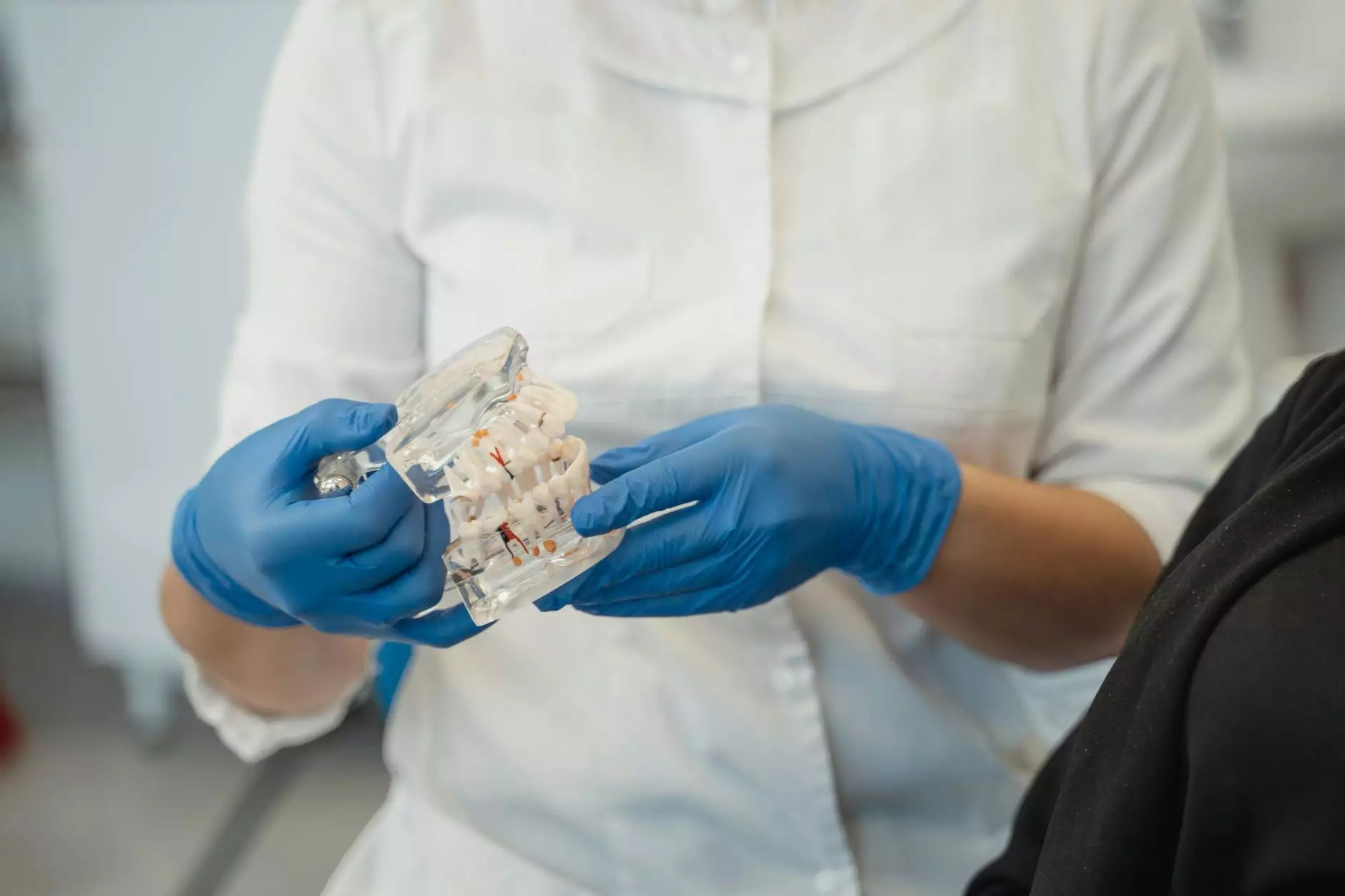Porcelain Crowns vs Zirconia: Which is Best for Your Dental Needs?

Choosing the right material for dental crowns can be a daunting task, especially with the wide variety of options available today. Among these options, porcelain crowns and zirconia crowns are two of the most popular choices. This article will provide an in-depth comparison of porcelain crowns vs zirconia, exploring their qualities, advantages, disadvantages, and most importantly, how they can affect your dental health.
Understanding Dental Crowns
A dental crown is a tooth-shaped cap that is placed over a tooth to restore its shape, size, strength, and improve its appearance. Crowns are usually recommended for:
- Restoring broken or worn teeth
- Protecting weak teeth
- Covering discolored teeth
- Supporting dental bridges
- Completing root canal treatments
What are Porcelain Crowns?
Porcelain crowns, also known as all-ceramic crowns, are made entirely of porcelain. They are often chosen for their aesthetic appeal, as they can be color-matched to the natural teeth. Here are some key points to consider about porcelain crowns:
Advantages of Porcelain Crowns
- Natural Appearance: Porcelain crowns can mimic the translucency of natural tooth enamel, offering a very natural look.
- Biocompatibility: Porcelain is a biocompatible material, which means it is less likely to cause allergic reactions.
- Minimal Tooth Reduction: They require less reduction of the natural tooth compared to metal crowns, preserving more of the tooth structure.
- Stain Resistance: Porcelain crowns resist staining and are easy to maintain.
Disadvantages of Porcelain Crowns
- Durability: While porcelain is strong, it can be more prone to chipping and fracturing compared to metal options.
- Wear on Opposing Teeth: Porcelain crowns can cause wear on adjacent teeth if they are not properly balanced.
- Cost: They can be more expensive than some other types of crowns, notably metal crowns.
What are Zirconia Crowns?
Zirconia crowns are made from zirconium dioxide, a strong and durable ceramic material. Zirconia is becoming increasingly popular in dentistry due to its strength and aesthetic qualities. Here’s what you should know:
Advantages of Zirconia Crowns
- Exceptional Strength: Zirconia crowns are incredibly durable and can withstand significant biting forces.
- Natural-Looking: They can be made to match the color of natural teeth and offer a pleasing aesthetic.
- Biocompatibility: Like porcelain, zirconia is biocompatible and does not pose a risk for allergies.
- Less Tooth Reduction: Zirconia crowns require minimal tooth reduction, preserving tooth structure.
Disadvantages of Zirconia Crowns
- Opaque Appearance: While zirconia can be made to appear natural, it can sometimes appear more opaque than porcelain.
- Wear on Teeth: Zirconia can wear down opposing teeth if not adjusted correctly.
- Cost: Zirconia crowns can also be on the pricier side, depending on the laboratory and technician skills.
Porcelain Crowns vs Zirconia: A Comprehensive Comparison
The debate of porcelain crowns vs zirconia often comes down to specific needs and preferences. Here are some factors to consider:
1. Aesthetic Considerations
Both porcelain and zirconia crowns can be customized to match the color of your natural teeth. However, porcelain crowns provide exceptional aesthetic results as they closely mimic the translucency of dental enamel. Zirconia, while aesthetically pleasing, may not match the depth of color seen in porcelain but still offers a natural look.
2. Strength and Longevity
Zirconia crowns are known for their unbeatable strength and durability, making them an ideal option for molars or teeth that undergo significant pressure. Porcelain crowns, while strong, may be more susceptible to chipping. Therefore, for patients with certain habits (like grinding teeth), zirconia might be the preferable choice.
3. Tooth Preparation
Both types of crowns require some degree of tooth preparation and reduction, but zirconia crowns typically require less than porcelain crowns. This is an essential consideration as it directly impacts how much of your natural tooth structure is preserved.
4. Cost Comparison
The cost of crowns can vary significantly based on various factors, including the dentist's experience, laboratory fees, and geographical location. Generally speaking, both porcelain and zirconia crowns can be similarly priced, but it’s always best to consult with your dental care provider for specific pricing as well as insurance implications.
5. Procedure Time
Both types of crowns usually require at least two dental visits. After an initial consultation and tooth preparation, temporary crowns are placed until the permanent crowns are ready. After that, the final crowns are adhered to the teeth. The duration of the overall procedure can be similar for both crown types.
Making the Right Choice for You
When it comes to the decision between porcelain crowns vs zirconia, there is no one-size-fits-all answer. Several factors will guide your choice:
- Your Aesthetic Goals: If the appearance is a primary concern, porcelain may be your best bet.
- Your Dentist’s Recommendations: It's crucial to consult your dental professional, who can assess your unique dental condition.
- Functional Needs: If you need a crown for a back tooth or one that will bear heavy loads, zirconia might be more suitable.
- Budget: Consider your financial situation and what your insurance covers.
Conclusion
In conclusion, both porcelain and zirconia crowns have their unique benefits and drawbacks. The choice between porcelain crowns vs zirconia should be influenced by your specific dental needs, aesthetic preferences, and professional advice. If you are still uncertain, discussing your options with a qualified dental professional can lead you to the best decision for your dental health and overall well-being.
At Chiswick Park Dental, our team is dedicated to helping you find the best solutions for your dental needs. We are equipped to provide detailed consultations regarding your options for crowns and take pride in our capability to deliver high-quality dental care tailored to you.









